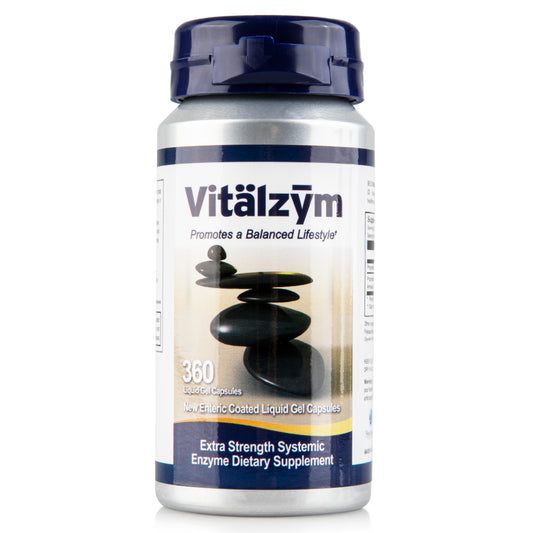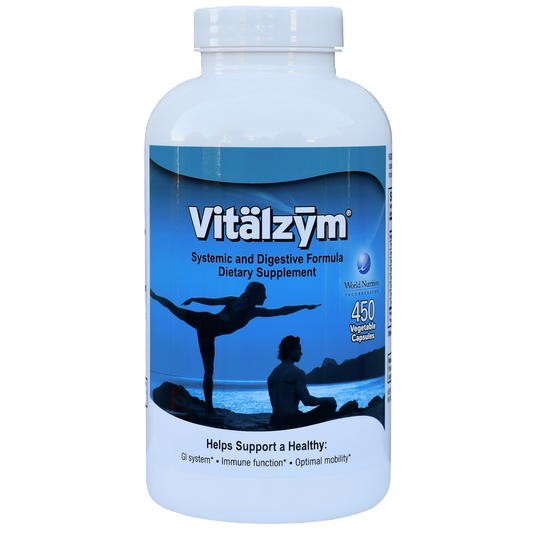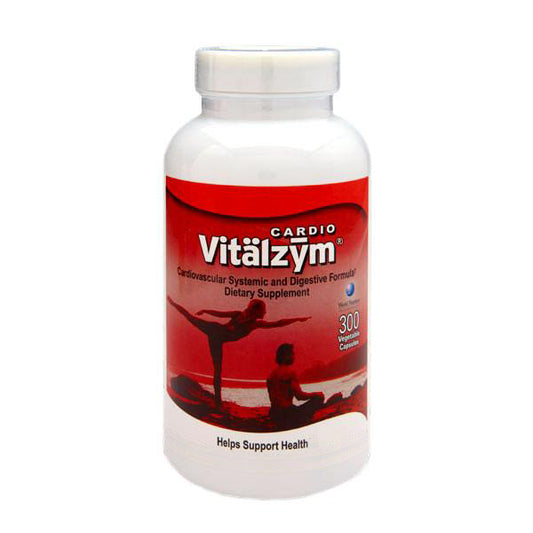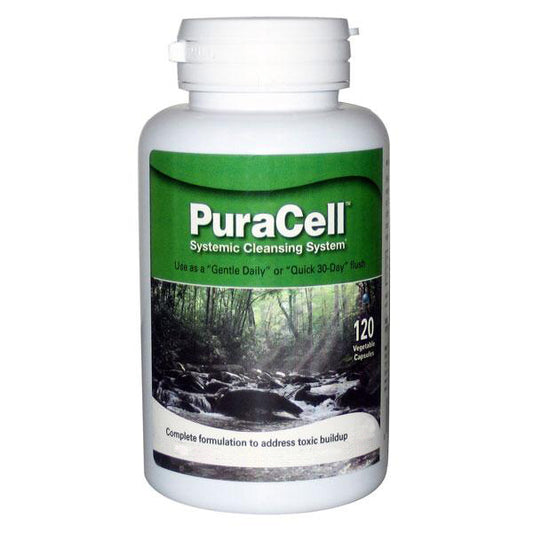Digestive health is a cornerstone of overall well-being, and enzymes are key players in this process. Proteolytic enzymes and digestive enzymes each have specific roles that contribute to efficient digestion and nutrient absorption. This article aims to clarify the differences between these enzymes, offering insights into their benefits and practical tips for integrating them into your diet to support a healthier digestive system.
What Are Proteolytic Enzymes?
Proteolytic enzymes, also known as protease, are specialized enzymes that break down proteins into smaller peptides and amino acids. These enzymes are crucial for various physiological processes, including digestion, immune function, and cellular repair. Found naturally in the stomach, pancreas, and intestines, proteolytic enzymes like trypsin and chymotrypsin help in the efficient digestion of dietary proteins, facilitating better nutrient absorption. They are also available as supplements and are often used to support muscle recovery, reduce inflammation, alleviate pain, and improve overall digestive health, particularly in conditions like cystic fibrosis when combined with probiotics.
What Are Digestive Enzymes?
Digestive enzymes, including amylase and lipase, are biological catalysts that facilitate the breakdown of food into absorbable nutrients within the digestive system. The salivary glands, stomach, pancreas, and small intestine are just a few of the organs that produce these enzymes. Amylases break down carbohydrates, lipases break down fats, and proteases break down proteins, with lipase specifically targeting fat molecules. By efficiently breaking down food, digestive enzymes, such as protease, ensure that the body can absorb essential nutrients, vitamins, and minerals, promoting overall health and well-being. They are also available as supplements to aid individuals with enzyme deficiencies or digestive issues, helping to alleviate symptoms like bloating, indigestion, and nutrient malabsorption.
Proteolytic Enzymes vs. Digestive Enzymes What’s The Difference?
Function
- Proteolytic Enzymes: Specifically break down proteins into peptides and amino acids.
- Digestive Enzymes: Include a variety of enzymes (amylases, lipases, proteases) that break down carbohydrates, fats, and proteins.
Source
- Proteolytic Enzymes: Found in the stomach, pancreas, and intestines; also available in certain foods like pineapple (bromelain) and papaya (papain).
- Digestive Enzymes: Produced by the salivary glands, stomach, pancreas, and small intestine; can also be found in fermented foods and enzyme supplements.
Benefits
- Proteolytic Enzymes: Aid in protein digestion, muscle recovery, reducing inflammation, and supporting immune function.
- Digestive Enzymes: Enhance overall digestion, improve nutrient absorption, and alleviate digestive discomfort such as bloating and indigestion.
Supplementation
- Proteolytic Enzymes: Often taken to support muscle recovery, reduce inflammation, and improve protein digestion.
- Digestive Enzymes: Commonly used to address enzyme deficiencies, improve digestion, and manage symptoms of digestive disorders.
Application
- Proteolytic Enzymes: Beneficial for athletes, individuals with protein digestion issues, and those seeking anti-inflammatory benefits.
- Digestive Enzymes: Suitable for anyone looking to improve overall digestive health, particularly those with enzyme deficiencies or digestive discomfort.

What Is The Best Source Of Proteolytic Enzymes?
The best sources of proteolytic enzymes are both natural foods and supplements. Naturally, these enzymes can be found in certain fruits such as pineapple, which contains bromelain, and papaya, which contains papain. These fruits not only provide a rich source of proteolytic enzymes but also offer additional nutritional benefits like vitamins and fiber. Additionally, fermented foods like sauerkraut and kimchi can contain proteolytic enzymes due to the fermentation process. For those seeking a more concentrated dose, proteolytic enzyme supplements are available and can be particularly useful for individuals with specific health goals such as improving protein digestion, reducing inflammation, or enhancing muscle recovery.
What Is The Best Type Of Digestive Enzyme To Take?
The best type of digestive enzyme to take depends on your specific digestive needs and health goals. A broad-spectrum digestive enzyme supplement with amylase, lipases, and proteases can be very helpful for general digestive support because it helps break down carbs, fats, and proteins. If you have specific issues, such as lactose intolerance, a targeted enzyme like lactase can help digest lactose found in dairy products. Similarly, individuals with gluten sensitivity might benefit from supplements containing dipeptidyl peptidase IV (DPP-IV) enzymes, which help break down gluten. It's important to choose a high-quality supplement from a reputable brand and consult with a healthcare professional to determine the most appropriate enzyme for your needs.
When Are Proteolytic Enzymes Used Over Digestive Enzymes?
Proteolytic enzymes like chymotrypsin are better than general digestive enzymes when the main goal is to improve the breakdown of proteins, help muscles recover, lower inflammation, or help treat medical conditions like osteoarthritis, chronic inflammation, or immune system disorders. While digestive enzymes are designed to break down a variety of macronutrients—carbohydrates, fats, and proteins—proteolytic enzymes specifically target proteins, like trypsin, making them particularly beneficial for athletes, individuals with protein digestion issues, or those recovering from injuries. Additionally, proteolytic enzymes have been shown to have systemic benefits beyond digestion, such as reducing inflammation and supporting immune function, which makes them a preferred choice in certain therapeutic contexts.
What Are The Pros and Cons Of Proteolytic Enzymes vs Digestive Enzymes?
Proteolytic Enzymes
Pros:
- Enhanced Protein Digestion: Specifically break down proteins into peptides and amino acids, improving protein absorption.
- Muscle Recovery: Aid in faster muscle recovery and repair, beneficial for athletes and active individuals.
- Anti-Inflammatory Properties: Help reduce inflammation and support immune function.
- Systemic Benefits: Can have effects beyond digestion, such as reducing chronic inflammation and supporting overall health.
Cons:
- Limited Scope: Primarily target proteins, so they may not address issues related to carbohydrate or fat digestion.
- Potential Allergies: Some individuals may be allergic to natural sources like pineapple (bromelain) or papaya (papain).
- Cost: High-quality proteolytic enzyme supplements can be expensive.
Digestive Enzymes
Pros:
- Comprehensive Digestion: Include a variety of enzymes (amylases, lipases, proteases) that break down carbohydrates, fats, and proteins, supporting overall digestive health.
- Symptom Relief: Can alleviate common digestive issues such as bloating, indigestion, and nutrient malabsorption.
- Versatility: Suitable for a wide range of digestive concerns and can be tailored to specific needs (e.g., lactase for lactose intolerance).
Cons:
- Over-Reliance: Long-term use may lead to dependency, reducing the body's natural enzyme production.
- Side Effects: Some individuals may experience side effects like stomach cramps or diarrhea, especially if taken in high doses.
- Quality Variability: The effectiveness of supplements can vary widely depending on the brand and formulation.
Conclusion
Understanding the differences between proteolytic enzymes and digestive enzymes is essential for optimizing digestive health and overall well-being. While proteolytic enzymes specialize in breaking down proteins and offer additional benefits like muscle recovery and inflammation reduction, digestive enzymes provide comprehensive support for the digestion of carbohydrates, fats, and proteins. By recognizing the unique roles and benefits of each type of enzyme, individuals can make informed decisions about incorporating them into their diets or supplement regimens. Whether you are an athlete seeking enhanced muscle recovery, someone with digestive discomfort, or simply looking to improve nutrient absorption, choosing the right enzyme can significantly impact your health and quality of life.
Final Thoughts
Maximize your body's potential with World Nutrition's Vitalzym Extra Strength, the leading vegetarian systemic enzyme supplement. Crafted for superior effectiveness, Vitalzym supports enzyme restoration, bolsters immune health, aids in post-exercise recovery, and promotes healthy circulation. Featuring a powerful mix of serrapeptase, bromelain, papain, and other essential enzymes, our formula fosters overall vitality and well-being. Don't let aging or lifestyle challenges impede your progress. Discover World Nutrition products and begin your journey towards a vibrant, healthier you.*
Sources
- https://www.britannica.com/science/proteolytic-enzyme
- https://versus.com/en/papaya-vs-pineapple
- https://goldengateobgyn.org/how-to-help-your-body-absorb-protein
These statements have not been evaluated by the food and drug administration (FDA). These products are not intended to diagnose, treat, cure, or prevent any disease.







